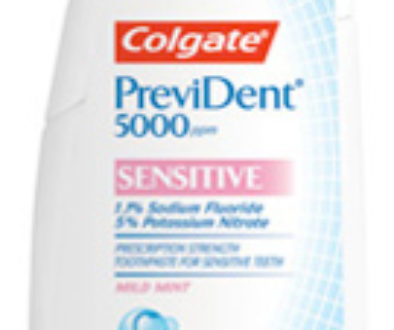Products for Dental Pain
Ingredients
Benzocaine (10-20%)- This is a topical anesthetic. When placed on your gum tissue it will numb the top 1-2 mm of tissue but will not numb any pain coming from your tooth. It can help with irritations of the gum, tongue, or cheeks.
Benzalkonium chloride (0.1 -0.13%) – This is an antiseptic, which helps to prevent infection. This is important for a wound like an ulcer.
Docosanol (10% cream) – This is the active ingredient in Abreva, a FDA approved OTC medication that significantly shortens the duration of cold sores. It penetrates into your skin and blocks the virus that causes cold sores from spreading.
Camphor (3%) – This works to reduce irritated and itchy areas. It stimulates certain types of nerves that help reduce pain and itching. It is good to use on cold sores, but you shouldn’t use it on open wounds (such as a canker sore / ulcer).
Menthol (0.5%) – Menthol has a lot of different applications. It is used in many products to create that cold sensation whether on your skin or in your mouth. In dental applications it is often used in mouthwashes for bad breath, to sooth sore throats, and as an analgesic for minor pain and irritations.
Phenol (1.4%) – Phenol has been used for a long time as a topical analgesic and antiseptic. It was actually one of the first drugs to be used in cleaning surgical wounds to reduce infection. There have been some concerns as to it’s long term safety for use.
Polyvinylpyrrolidone (PVP)- This is a polymer that helps certain medications stick to canker sores. The challenge with many traditional medications is that they only work for about 20 minutes because they fail to stay in the area.
Sodium Hyaluronate – This is is often used in conjunction with PVP and speeds healing of canker sores / ulcers.
True Dental Pain
Dental pain can be difficult because there aren’t many over the counter options for pain control that work well when there is true dental pain. For severe toothaches your best option is to take 400-800 mg of Ibuprofen every 6 hours and see a dentist as soon as possible. This generally isn’t something you can take care of yourself. For other types of dental pain related to canker sores, cold sores, and TMJ symptoms there are some products and steps you can take to help relieve the painful area.
Canker Sores / Ulcers
These painful areas inside your mouth can be caused by everything from sun exposure to the type of toothpaste you use. Plain orajel or any other product containing 20% benzocaine will cause some temporary numbness in the area but only work for about 20 minutes. Some newer products have come out that do quite a bit better than plain orajel. They tend to coat the area, reduce the pain, and speed healing. My two favorite products are Canker X and Orajel for Canker Sores.
These areas should always heal within 1-2 weeks with no treatment. If you have an area that doesn’t heal within a couple of weeks, you should have a dentist take a look at it as it can be the sign of something else going on.
Cold Sores
Cold sores are caused by a specific type of virus and most often appear on your lips. Oftentimes you can feel the area start tingling before the cold sore actually breaks out. Abreva is a medication that is approved for cold sores and helps them heal more quickly. As soon as you feel a cold sore coming on, start applying this medication. It is good to have on hand as you have to start applying it early for the best results.
TMJ Pain
Some people have occasional TMJ pain. Most of the time this pain will resolve with a simple combination of rest, soft diet, and anti-inflammatory medication (400-800 mg of Ibuprofen every 6 hours). If your TMJ pain is more than occasional, you may need to look at a more in depth TMJ management program that includes a TMJ splint and specific exercises. For more information see our page on TMJ Treatment Options.
Sinus Pain
It is relatively common for sinus pressure to cause your upper teeth to hurt. The roots of your upper molars sit right inside the maxillary sinuses and any pressure can cause a dull aching pain. This pain is usually worse when you bend over stand back up. The best option in this case is to take a decongestant.
You want to purchase a decongestant that contains Pseudoephedrine. Many common decongestants contain Phenylephrine which is far less effective, if at all. Any medication with Pseudoephedrine in it has to be purchased at a pharmacy where they will want to see your ID because pseudoephedrine has often been used to create methamphetamine in home meth labs.






